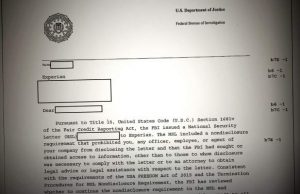Already under siege from Congress and federal regulators, big tech has a new set of adversaries: state attorneys general.
Monday, the attorneys general of 48 states, plus the District of Columbia and Puerto Rico, said they had begun an investigation of whether Google is abusing its power as the dominant provider of internet search.
The news follows a similar probe of Facebook revealed Friday by eight states and DC, led by New York Attorney General Letitia James. Meanwhile, the Department of Justice and Federal Trade Commission are conducting their own antitrust investigations into big tech companies. The DOJ’s investigation reportedly includes Apple and Google, while the FTC looks into Facebook and Amazon.
During a press conference in Washington, DC Monday, Texas Attorney General Ken Paxton, who is leading the Google investigation, emphasized that the states are still gathering information and declined to discuss what action the states might take if they find evidence of anticompetitive behavior. But it’s clear that the attorneys general involved are concerned about Google’s dominance of search.
“There’s nothing wrong with being the dominant player if it’s done fairly,” Utah Attorney General Sean Reyes said during the press conference. “But there’s a reason so many of us have gathered together.”
The investigation is focused on online advertising, especially as it relates to search. Other aspects of Google’s business, such as data privacy issues or its licensing policies for the Android operating system, aren’t foci of the investigation, for now.
Several of the attorneys general highlighted the company’s growing tendency to favor links to its own services, or paid advertisements, over unpaid links in search results.
The only states not involved in the Google investigation are California and Alabama. “California remains deeply concerned and committed to fighting anticompetitive behavior,” said a spokesperson for Attorney General Xavier Becerra. “But to protect the integrity of our work, we can’t comment—to confirm or deny any pending or potential investigation.”
“We have always worked constructively with regulators and we will continue to do so,” Google senior VP of global affairs Kent Walker wrote in a blog post last Friday. “We look forward to showing how we are investing in innovation, providing services that people want, and engaging in robust and fair competition.” Facebook did not respond to a request for comment.
The states are far from the first to raise these issues. The Obama-era FTC investigated Google for potentially anticompetitive behavior, but in 2013 decided not to pursue a lawsuit after Google made a few changes, such as allowing companies like TripAdvisor and Yelp to opt out of having their content used in Google’s own services. The European Union has fined Google roughly $9 billion in three cases involving alleged anticompetitive practices since 2017, including one for prioritizing its own content over others’ in search results.
States can add considerable firepower to cases involving alleged corporate misbehavior. For example, 20 state attorneys general joined the Department of Justice in the landmark antitrust suit against Microsoft launched in 1998.
The attorneys general of 46 states reached a “master settlement” with the four largest tobacco companies. States like Oklahoma are also driving much of the legal action against pharmaceutical companies in repose to the opioid crisis.
Sometimes, states have found themselves at odds with federal regulators over tech policy. In 2017, then New York Attorney General Eric Schneiderman announced a multistate lawsuit against the Federal Communications Commission in an attempt to stop the agency from jettisoning its net neutrality protections; other states passed their own laws prohibiting internet providers from blocking or otherwise discriminating against lawful content. In June, nine states and the District of Columbia filed suit to block T-Mobile’s acquisition of Sprint, which both the FCC and Department of Justice approved.



